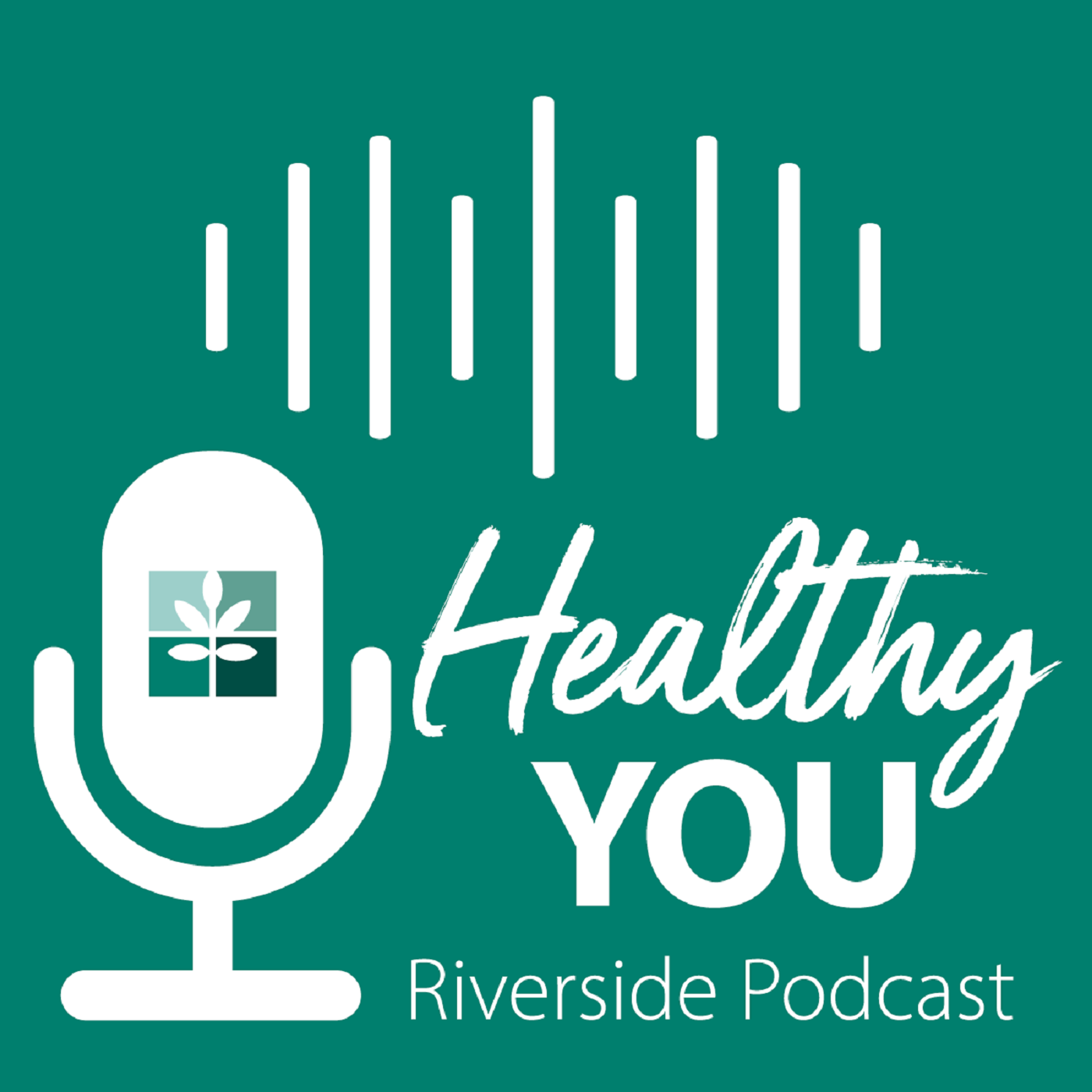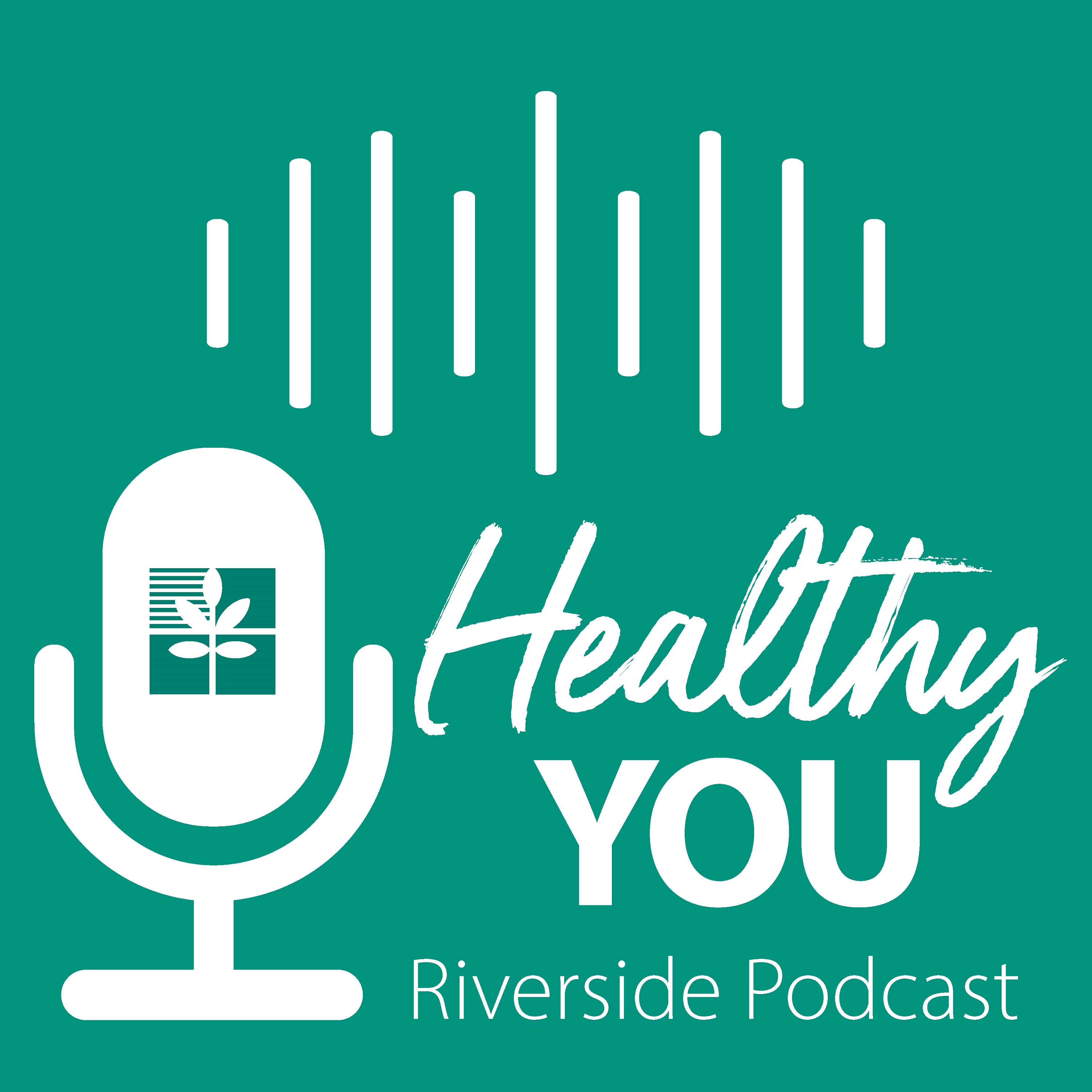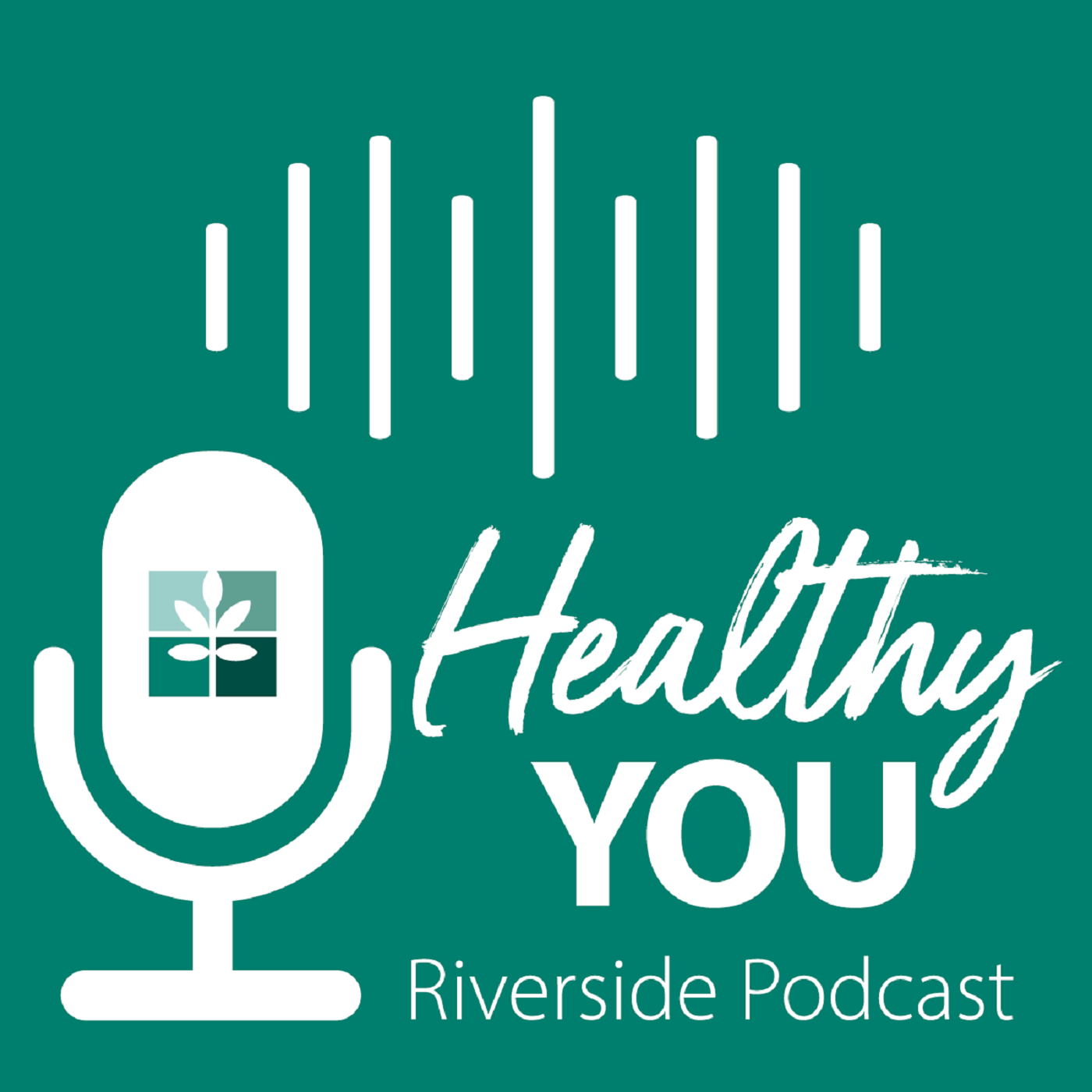Episode Transcript
Speaker 0 00:00:00 From Riverside Health System. This is the Healthy Youth Podcast where we talk about a range of health related topics focused on improving your physical and mental health. We chat with our providers, team members, patients and caregivers to learn more about how to maintain a healthy lifestyle and improve overall physical and mental health. So let's dive into learn more about becoming a healthier You all right. Hello, how are you?
Speaker 1 00:00:27 I'm good. How are
Speaker 0 00:00:28 You? I'm doing well. I'm really excited to have you join us for the Healthy You podcast. I have with me today, Dr. Alexandria Ward, cardiologist for Riverside Cardiology Specialist and director of Riverside Women's Heart Center. Welcome. Thank
Speaker 1 00:00:46 You. Yes. Happy
Speaker 0 00:00:47 To be here. Yes. We're gonna be talking a little bit today about women and heart disease, um, and it's really near and dear to my heart. So first I wanna start out with why did you decide to go into cardiology as a physician?
Speaker 1 00:01:01 So, that is a very long-winded answer I have, so I will be brief, but I initially wanted to do women's health and I thought about doing OB gyn. Okay. And then I realized I hate surgery. So that was off the table. Right. Cardiology was one of the first rotations I did during medical school, and I just loved how interesting it is complex, but also that we can make patients feel better. Right. So we can get the sickest of the sick and we can get them feeling better on great medications, with great procedures, get them out of the hospital living their lives. So that's why I chose cardiology and why I have my specific interest in women's heart health.
Speaker 0 00:01:43 Great, great. Awesome. Thank you for your commitment and your passion, um, around that space. Um, talk a little bit about what's the number one cause of death in women?
Speaker 1 00:01:55 So the number one cause of death in women is heart disease, which a lot of women are actually not aware of. So that's why it's so important to have these conversations, to be involved in the Go Red for women events and to really focus on February as Women's Heart Health Month at is, it is the number one cause of death in women. One in three women will have heart disease and one in three women will die from heart disease.
Speaker 0 00:02:19 Okay. As it relates to awareness and then more specifically prevention. Talk to me about what you would, um, say is important as it relates to educating, um, community A around that.
Speaker 1 00:02:34 So the biggest, I think, point that we can make in our biggest goal for education is that awareness that heart disease is the number one killer of women, but most women, more than half of women don't know that. So that's really the number one that we have to focus on and do a better job of as a medical community, is increasing that awareness and education and saying heart disease is the number one killer of women. But then also knowing the risk factors and how heart disease presents in women, because those are slightly different in men and women.
Speaker 0 00:03:04 Okay. So talk a little bit about some of those risk factors.
Speaker 1 00:03:08 So there are both traditional risk factors Okay. That both men and women have, and that is actually what people tend to know. Yes. So that's the high blood pressure, right? High cholesterol smoking, the biggest and most preventable, right. Diabetes, high cholesterol, obesity. Right. But then women have risk factors that are both specific and predominant to women. Okay. So the specific risk factors, are those related to any of the cardiovascular complications of pregnancy? Oh, so having high blood pressure during pregnancy, preeclampsia, gestational diabetes, or a peripartum cardiomyopathy. Right. Certain breast cancer treatments, autoimmune disease is actually a bigger risk factor in women than in men. Okay. As is anxiety and depression. So there are some risk factors that are more prevalent and predominant in women.
Speaker 0 00:03:54 Okay. I know for me, um, in my family, I, we have, you know, <laugh>, high blood pressure and diabetes. Uh, my mom actually lost her mother at 39 of a massive heart attack and I've been a nurse for over 31 years, but I recently, within the last 10 years start reading labels, you know, and I'm a healthcare professional and I know better, right. But I think so often as women, we prioritize everyone else in our lives and we put ourselves last. So now before I buy anything, I kind, I, I read the label, I look at what is the sodium intake, what is the carb intake? Um, because I was diagnosed pre-diabetic as well and I said, you know what, this is really bad Frankie, because you know better, you're a healthcare professional, so how am I gonna be a role model if I'm not even doing it for myself? And I was able to turn that around. Um, so I make better choices. So I'm really glad that you mentioned some of those things that are avoidable and preventable because we wanna control those, um, as well. So, so, so great information there. Um, we talked about some of the traditional risk factors. Are there others that you would, um, talk about as well?
Speaker 1 00:05:15 Yes, absolutely. So those gender predominant gender specific risk factors, because those are the ones that are not well known. Okay. So those traditional risk factors, when we rattle them off, most people go, oh yeah, I've heard that before. Sure I can do better. Right. But I know what you're talking about. Those gender specific and gender predominant risk factors are the ones that people are not aware of. Right. And people in the medical community as well as our patients are not necessarily aware. So those are the ones I tend to really focus on. And those are some things that women might be in their sixties now and they had a child in their twenties and they don't think, oh, something that happened that long ago is a risk factor for heart disease. And it is. So I really do like to, to focus on the younger patients and say, let's know our risks both the traditional and the gender specific, gender predominant. Because to your point, prevention is
Speaker 0 00:06:06 Key. Yes. And the way we access care is so different. Uh, now you, there were stronger connections to your primary care and your primary care could then navigate you to some of the specialists, whether it be cardiology or endocrinology. And those things have changed somewhat because there's other avenues that you can, um, access primary care and not really have a strong relationship. So if you're someone and you wake up today and say, Hey, I wanna do better, um, I wanna know more, what type of plan would you say, um, they need to take, if they wanna start to understand more about what's going on, if they have a family history and they've never been seen before or never been evaluated, what would your suggestion be to someone that says, I'm gonna, I'm gonna understand more about this.
Speaker 1 00:06:54 So number one is knowing your risk. Right? And that is either talking to your primary care, talking to your family members, really diving into your medical history and your risks. And then knowing your numbers is also so important. So knowing what your blood pressure is, your cholesterol, your a1c, or the measure of your glucose control. So important for not only knowing your risk but then also knowing those numbers and where you stand. And then also being your best advocate. I always say this, our patients are their best advocates. They know themselves the best. So talk to your primary care. If you think you need to see a specialist to really say, I wanna work on prevention, I wanna know this more, we are happy to help.
Speaker 0 00:07:35 Okay. And also as it relates to baseline EKGs, you're hearing more and more about that? Um, I actually had a procedure not too long ago and they realized I didn't have a baseline ekg. And so they did um, send me to, referred me to have that completed. Um, talk about that a little bit. Is there more education in that space around getting that baseline ekg? Is that necessary or what are your thoughts around that?
Speaker 1 00:08:02 So that's an excellent question. And it depends entirely on age, gender, risk factors. Okay. A lot of times before any procedures, they will go ahead and say, let's get an ekg. Cuz we might see things on EKG that people would have no symptoms of. Right. So just good to know, it's not normally part of the physical exam for younger patients, but as we get older, it is something that you'll start to see happen at least once a year.
Speaker 0 00:08:28 Right. And you're, you see what's happening, things are happening and with athletes mm-hmm. <affirmative> and the media right now. And so the, they're younger, um, which traditionally you think you're not at risk for some of these things. So there's a lot of conversation going on in that space. Um, what are some signs and symptoms of heart attack in women?
Speaker 1 00:08:48 So the primary sign and most women will present is chest discomfort. We don't like to use the word chest pain because most patients will say it wasn't pain, it was a burning sensation, a pressure sensation. I've had patients tell me it was the worst heartburn of their life even though they've never had heartburn. So that's something right to keep an eye on. But most women also present with other symptoms in addition to chest symptoms. So shortness of breath, extreme fatigue, back pain, abdominal pain, nausea, vomiting, feeling hot and sweaty all over. And so that constellation of symptoms having one, two, all of them are concerning for heart disease in women. And I also like to say that women do not have atypical symptoms. You'll sometimes hear that said women have women's specific symptoms. So that is typical for women to have those symptoms of heart attack.
Speaker 1 00:09:41 Great. My mom, even though I'm the nurse, she'll say, make sure you carry around a baby aspirin because if something happens, just take a baby aspirin. What are your thoughts on that myth and <laugh> and that something that people feel like they ought to be armed with at all times in case something comes up? I would say that's not the worst guidance out there. Right. Um, but if you are having any of those symptoms, get yourself to an emergency room, don't drive yourself, and they'll give you a full dose aspirin on the way. So if you don't carry it, it's okay. Don't feel bad. Awesome. Thank you. Thank you so much for your commitment and all the work that you're doing in this space to support the communities that we serve. Is there anything else that you think would be important or relevant in this space to talk about today?
Speaker 1 00:10:26 Well, I think for women particularly, and you brought up this point, and I think it's so important, is that women tend to take care of themselves last. Right. And I always like to say, you can't be taking care of anybody else if you're not taking care of yourself first. So to our women out there, please know your risk, know your numbers, prioritize yourself, both your physical, emotional and mental health because all are very important for your health as a person. And really make sure that you are priority number one, because you can't do anything for anyone else if you're not looking after yourself first. Absolutely. Well said. And that would be my advice to my younger, I understand for generation, is that I wish I had learned that earlier, to have that balance. And so it's so important. But thank you so much and it's been a pleasure to have you. Thank you for having me.
Speaker 0 00:11:18 Thank you for listening to this episode of Healthy Youth. We're so glad you were able to join us today and learn more about this topic. If you would like to explore more, go to riverside online.com.


